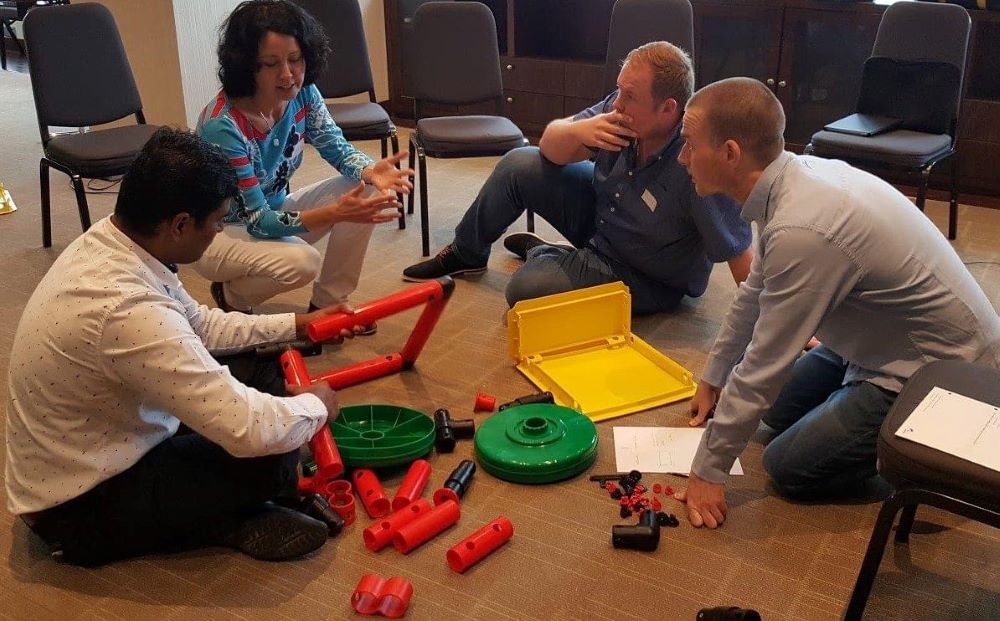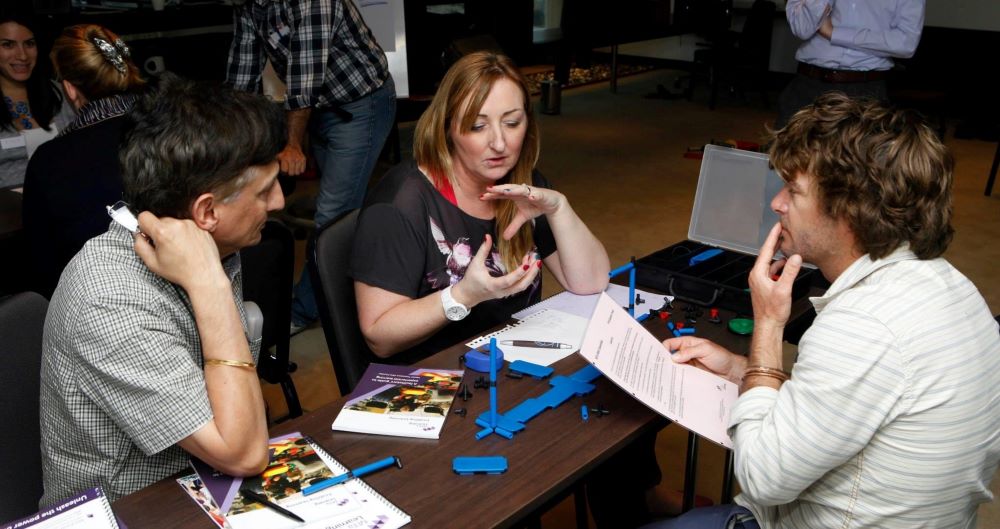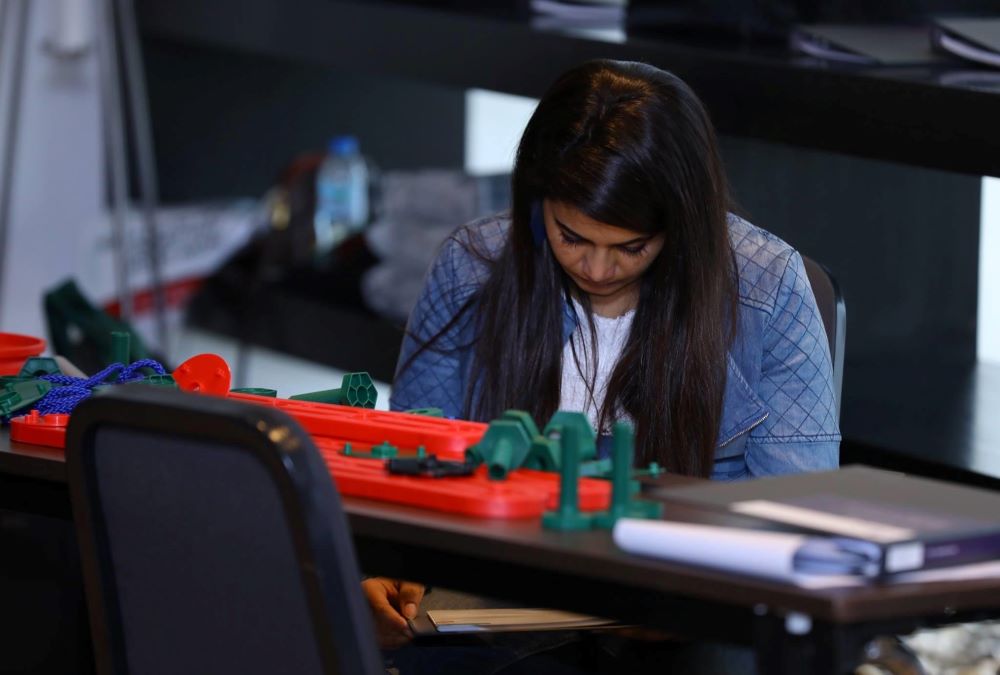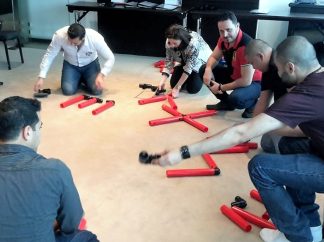Optimise Team Development with an MTa Experiential Learning Kit
Getting a team of different individuals to work together seamlessly and harmoniously towards a shared goal is one of the most important challenges any organisation faces. Misunderstandings and tensions around conflicting perceptions can lead to paralysis at best, and outright hostility at worst. But how do you get your team working in the optimal way to meet shared goals and accommodate and nurture the different individuals involved?
Core team skills like communication and team working are key, and we cover those elsewhere. Team building activities are great for building morale and helping people get to know one another. But in this article we’re digging deeper to look at team development: to understand what actually makes your particular team tick, and how experiential training activities from MTa can help you optimise that.
We’ll introduce some of the most relevant activities for team development below. But if you’re not sure where to start, it might be easier to give us a call or chat to us and we’ll help you find the right training activities for you, or read on for an idea of what’s available.
A well-oiled machine
Have you ever watched a world class sports team, like Brazil playing football? Have you seen how they seem to effortlessly pass the ball between each other, and everyone seems to be in just the right place at just the right time? It’s as if they can read minds. And in a way, they can: they’re so used to working together in different formations that they can usually anticipate what is going to happen next.
Or think of the pilot, co-pilot on a plane. When the time comes to make split-second decisions there is no time for debate and explanation: everyone has to simply know what they’re going to do and what happens next. The same goes for a busy and successful restaurant kitchen: chefs, sous-chefs and porters move quickly and seamlessly around a cramped space full of hot oil and boiling pans.
In all three scenarios, people operate like a well-oiled machine: predictable, dependable, responsive.
None of this happens by accident. It takes time and lots of practice for teams to develop and grow. But it’s usually not a good idea to practice for real: just think of all those missed goals, crash landings or broken plates! MTa’s team development activities let your team practice and hone the skills, abilities, attitudes and behaviours they need to work like that well-oiled machine, without the pain of doing it for real.
MTa Team Kit has several rich and complex team development activities that allow your team to optimise how they work together. Over the Bridge is a two-part activity that centres on core team skills, customer focus, identifying objectives and quality standards. The first part introduces the concepts and the task which seems fairly simple, but the brief and customer expectations are ambiguous. Teams need to clarify objectives and plan carefully before getting stuck in. The second part allows them to improve performance based on what they learned first time round: practice makes perfect.

Digital Display, also in MTa Team Kit, tackles the complex issue of individual versus team success. It underscores the principle that getting your own work right and striving for excellence doesn’t matter if you can’t see the bigger picture, take responsibility for the team and communicate the right thing at the right time in the right way. Sometimes you need to even undo all your own work to help others.
MTa Mini is another kit with great team development activities like The Rig. This focuses on project management, planning, team communication and understanding the big picture and constraints. There’s the added challenge of the team working on the same task but across different locations. With the team split it’s very easy to get focused on the task rather than the big picture of making money, which is determined by set criteria.

And among the 53 activities in MTa Insights, there are many powerful team development activities that are tailored for specific development needs. If you know, for example, that you want to help build your team’s skills around leadership, communication or problem solving, for example, there are whole suites of activities targeted at the areas where you most need help. Take an activity like The Hoist: you could use this with managers to get them to think about how they are leading the people who work for them.
And while these activities are all very hands-on and engaging, the learning they instill is well grounded in theory. Over the Bridge explores Peter Hawkins’ Five C’s for high performing teams (Commissioning, Clarifying, Co-creating, Connecting and Core learning). And Digital Display often exposes dysfunctional behaviour in the team, allowing you to explore and overcome the five dysfunctions of a team identified by Patrick Lencioni.
Reflect on your reality
Every kit includes insightful resources that help participants reflect on what happened in the activities, and to consider the skills, behaviours and attitudes that are necessary to succeed. In a well-facilitated exercise, it is this reflection that provides most of the learning. MTa call this the ‘Learning Arena’ where all participants are encouraged to:
- Identify the positive, indifferent and negative aspects of the activity being reviewed
- Build on positive aspects to make them even more valuable
- Develop ideas to address indifferent and negative aspects
- Evaluate and select ideas to be implemented
- Explore, practise and refine ideas
- Plan the Learning Transfer: how will the learning experience lead to tangible improvements in day-to-day performance
Participants are encouraged to reflect and think for themselves and then share their perspectives with the group. To help that reflection, each leadership activity comes with learning review sheets that should be completed before group discussion. Download a sample learning review sheet here.

One of the best ways to see these kits in action and to find out which kit(s) are best for you, is to attend one of MTa’s Facilitator Masterclasses. Here you’ll get unique insights from our experienced facilitators on how to run successful sessions, as well as first-hand experience of the kits and your own reflection
Call our friendly team today to find out more, or view the full range of MTa’s learning, development and assessment activities at https://www.experientiallearning.org/training-activities/

